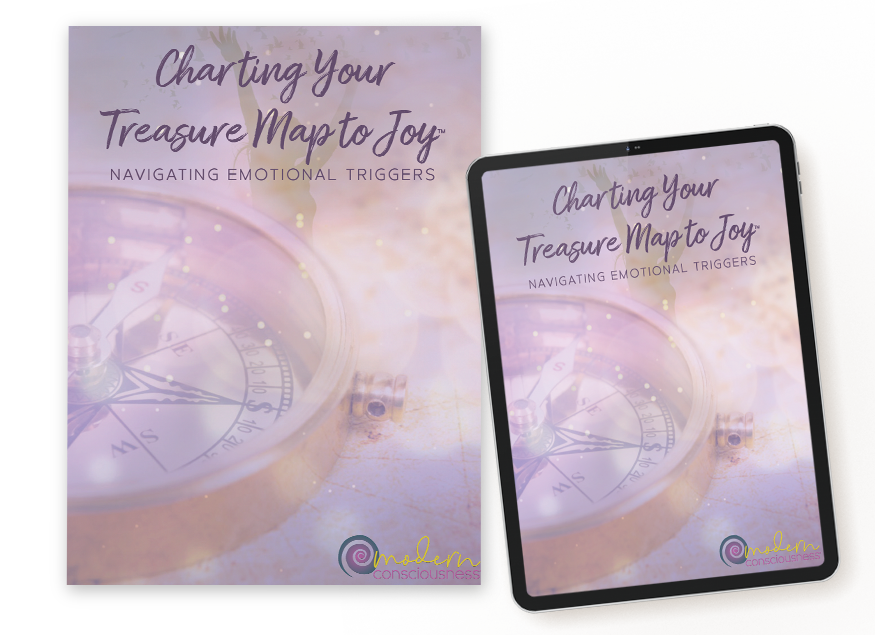Have you ever caught yourself thinking, “Why do I keep doing this?”
You know the behavior isn’t serving you. You see the consequences. It frustrates you. Every. Single. Time. And yet, you find yourself doing it again and again and again.
That’s one of the frustrating things about self-sabotage. We know it doesn’t make sense. We know it’s out of alignment with our core values and how we see ourselves as a person (unless, of course, we’re completely unaware that we are self-sabotaging, which is often the case.)
Anyway, who would purposefully sabotage themselves? Who would do that?
Well, most of us do ‘do that’ actually and it’s not some random personality quirk (although, for the record, we can be what others may define as ‘quirky’ intentionally without making excuses or having regrets. But I digress.)
In this, the second in my self-sabotage blog series, we’re going to explore some of the most common root causes of self-sabotage, because understanding why we continue to do anything that doesn’t serve us is key to breaking the cycle. I’ll warn you, this blog is lengthy! It’s an important topic!
(If you missed the first blog in the series, you can find it here.)
The Roots of Self-Sabotage
Self-sabotage doesn’t come from laziness, lack of willpower, or even bad intentions. More often than not, these behaviors are tied to deeper fears, beliefs, and emotional responses that operate below the surface of our awareness. If you know me, you know I’m a huge advocate for awareness, particularly self-awareness. Awareness is a profound skill—one that’s absolutely critical to creating a harmonious, flourishing life. So, let’s raise our awareness about the roots of self-sabotage and look at some of the most common drivers.
- Fear of Failure
At its core, fear of failure is about self-protection—it’s a way of shielding ourselves from the sting of disappointment, judgment, or perceived inadequacy. If we don’t try, we can’t fail, right? This fear often masquerades as procrastination, avoidance, or even perfectionism—where delaying action feels safer than risking mistakes or falling short of expectations.
- What It Sounds Like in your Head:
“What if I can’t deliver at the level people expect?”
“If I go all in and it doesn’t work, what does that say about me?”
“Maybe I’ll just wait until I’m 100% sure it’s the right time.”
“What if people find out I don’t really know what I’m doing?” - The Impact:
Fear of failure keeps you stuck, trapped in your comfort zone (which, oddly, may not actually be that comfortable after all as it’s causing you some frustration.) It causes you to miss opportunities to grow, achieve success, or even learn from valuable failures. Over time, this fear erodes your confidence, leaving you feeling stagnant and disconnected from your potential.
The irony is that failure itself isn’t the problem—it’s the meaning we assign to it. When we view failure as proof of our inadequacy rather than a steppingstone for growth, we paralyze ourselves. Yet, some of life’s greatest lessons and achievements come not from avoiding failure but from embracing it, learning through the experience, and moving forward with resilience.
- Fear of Success
This one might sound surprising, but for many, the idea of success brings as much anxiety as the thought of failure. Success often means stepping into new, unfamiliar territory, where higher expectations, added responsibilities, or increased visibility come into play. It can feel overwhelming, especially if you’re already managing a full plate or struggling to believe you truly deserve the rewards of your efforts.
But fear of success isn’t just about the pressure or responsibility—it’s may be the belief that success isn’t possible for you. Maybe you’ve internalized messages from your past that tell you people like you don’t achieve “big” success, or you’re worried that even if you get there, you won’t be able to sustain it. These beliefs act like invisible barriers, convincing you to play small and avoid risks that could propel you forward.
- What It Sounds Like in your Head:
“If I succeed, people will expect me to do this every time.”
“Success comes with too much pressure—I’m not sure I can keep up.”
“People like me don’t achieve that kind of success.”
“If I go for it and lose it all, the fall will be even harder.”
“What if I can’t sustain it? What if it all falls apart?”
- The Impact:
Fear of success can be just as paralyzing as fear of failure, keeping you stuck in a comfort zone that feels safe but limits your growth and fulfillment. You might hold back from sharing your ideas, avoid pursuing bigger opportunities, or sabotage your efforts (without you even realizing it) when you’re on the brink of achievement. Over time, this fear erodes your confidence and creates a cycle of missed opportunities and regret.
The truth is, success isn’t about being perfect or having everything figured out—it’s about showing up, learning as you go, and trusting in your ability to grow through the process. But when fear convinces you that success is unattainable or unsustainable, it keeps you from stepping into the life you’re capable of creating.
3. Limiting Beliefs
Limiting beliefs are the stories we tell ourselves about what we’re capable of (or not)—or what we deserve (or don’t). They operate quietly in the background, sneakily shaping our thoughts and decisions without us even realizing it. Limiting beliefs are often rooted in past experiences, societal expectations, or even things we internalized during childhood, like the roles we were assigned (“the responsible one,” “the dreamer”) or messages we heard repeatedly about success, worth, or failure.
For many, these beliefs create invisible boundaries around what feels possible. You might want something deeply—success, financial freedom, a healthier lifestyle—but if you don’t believe it’s available to you or that you’re deserving of it, self-sabotage steps in to keep you “safe” in familiar territory.
- What It Sounds Like in your Head:
“I’m not the kind of person who makes bold decisions.”
“It’s too late for me to change careers/start over/make a difference.”
“I’m not good with money—I’ve never been able to save or stick to a budget.”
“Relationships never work out for me. Why even try again?”
“I’m not smart/creative/disciplined enough to do that.”
- The Impact:
Limiting beliefs are incredibly powerful because they shape the lens through which you see the world. They influence how you interpret opportunities, setbacks, and even your own abilities. When you believe you’re not capable or deserving of something, you unconsciously make choices that reinforce that belief.
This can mean turning down opportunities because you feel unprepared, hesitating to take risks because failure feels inevitable, or settling for less than what you truly desire because it feels safer. Over time, these choices create a self-fulfilling prophecy, keeping you stuck in patterns that limit your growth and fulfillment.
The truth is, limiting beliefs are just that—beliefs. They’re not facts, but they can feel like reality if left unexamined. The first step to breaking free from them is to recognize the stories you’re telling yourself and begin to question their validity. What if they’re not true? What if you’re capable of far more than you give yourself credit for?
 4. Cognitive Dissonance
4. Cognitive Dissonance
Cognitive dissonance happens when your actions, decisions, or circumstances conflict with your core beliefs or values. This internal conflict or mis-alignment creates a deep mental and emotional tension within you that’s hard to ignore, even if you can’t quite put your finger on what’s wrong. Instead of resolving the conflict, some unconsciously turn to self-sabotaging behaviors—like avoidance, denial, or procrastination—as a way to temporarily “solve” the discomfort.
At its essence, cognitive dissonance it’s the disconnect between who you believe you are and what you’re doing (or not doing). And it’s exhausting. The gap between your actions and your values/desires doesn’t just create tension—it creates guilt, anxiety, and a sense of being stuck, all low-frequency negative emotions. Who wants that?
- What It Sounds Like in your Head:
“I value financial stability, but I keep spending money I don’t have.”
“I want a healthier lifestyle, but I keep skipping workouts and ordering takeout.”
“I value integrity, but I’m staying in this situation that feels so out of alignment with who I am.”
“I want to be present for my family, but I keep overcommitting to work.”
- The Impact:
Cognitive dissonance is Draining with a capital D—it eats away at your energy and focus because your mind is constantly wrestling with that internal contradiction. Over time, this unresolved tension can lead to feelings of guilt, shame, and frustration. It might make you question your abilities or even your sense of self, leaving you stuck in patterns that are both unproductive and misaligned with the life you desire to be experiencing.
The good news? Cognitive dissonance is also an opportunity. That internal tension is your mind’s way of telling you something’s out of alignment and needs your attention. When you take the time to explore the gap between your actions and your values, you can start making choices that bring you closer to the person you want to be and the life you want to create. (a little plug here because this is exactly what we do in my Elevate Your Life® program.)
- Discomfort with Change
Change, even when it’s good, can feel unsettling. That promotion you’ve worked so hard for? The relationship you’ve dreamed of? The relationship you know you’ll be better off without? They all come with a catch—stepping into the unknown.
We humans love familiarity. It’s wired into our brains because familiarity equals safety. So, when we’re faced with something new—whether it’s a promotion, a relationship, or a healthier lifestyle—it’s not uncommon for resistance to creep in.
Change, even when it’s exactly what we’ve been working toward, often feels like a leap into the unknown. This discomfort isn’t just fear; it’s your brain trying to keep you in your comfort zone, even if that zone isn’t serving you anymore.
- What It Sounds Like in your Head:
“What if I’m not ready for this? What if it all falls apart?”
“I’ve always done things this way—what if the new way doesn’t work?”
“I can’t leave this relationship—then I’ll be alone!”
“I’m not sure I can handle the responsibility this change will bring.”
“What if I invest in this healthier lifestyle and fail—again?”
- The Impact:
Discomfort with change can lead to hesitation, self-doubt, and even avoidance of opportunities that could bring joy, fulfillment, or growth. You might find yourself clinging to routines, habits, or circumstances that feel familiar but are keeping you stuck. In the process, you resist the very changes that could help you become the person you want to be or live the life you envision.
This kind of internal resistance can show up as self-sabotaging behaviors like overanalyzing every decision, procrastinating on taking the next step, or talking yourself out of opportunities with “what if” scenarios. Over time, this resistance creates a pattern of stagnation, where the fear of change outweighs the potential benefits it could bring.
The truth is, change always feels uncomfortable at first—to everyone. It goes against our human instinct to remain in the realm of what’s familiar to us. But stepping out of the status quo is where growth happens. Every meaningful transformation requires stepping into some level of discomfort. The key is learning to trust that you can adapt, handle challenges as they arise, and create the stability you need in new circumstances.
Why Understanding the Why Matters
When you take the time to explore the root causes of your self-sabotage, you’ll start to see patterns emerge. Maybe your procrastination isn’t just about avoiding a boring task—it’s tied to fear of getting it wrong. Or maybe you overcommit to others because deep down, you’re afraid of being seen as selfish.
This kind of self-awareness isn’t always comfortable, but it’s incredibly powerful. When you understand the why behind your behaviors, you can begin to challenge those fears, beliefs, or thought patterns—and replace them with actions that support the life you want.
Take the Next Step
Understanding the root causes of self-sabotage is a vital step in breaking free from these patterns. But awareness is only the beginning. To truly move forward, it’s important to recognize how these behaviors show up in your life and the impact they’re having.
If you haven’t yet taken my Self-Sabotage Quiz, now’s the time. The quiz is designed to help you uncover which of the five most common self-sabotaging habits might be holding you back—and offers personalized insights to help you address them. Click here to take the quiz.
What’s Next?
Now that you understand why self-sabotage happens, it’s time to focus on how to break free from these patterns. In the next blog, I’ll dive into practical strategies for overcoming self-sabotage, including simple techniques for self-reflection, replacing unhealthy habits, and creating workarounds for behaviors that feel hard to change.
Stay tuned—you won’t want to miss it!
If I could share only one strategy to Elevate Your Life®, it would be this: calming your emotional triggers is the gateway to a life filled with joy, peace, and alignment.
Triggers are tricky little things. They show up uninvited, pulling us out of the present moment and into reactions that don’t feel authentic—or aligned with who we truly are. And they often don’t create the results, or the emotions, that we so strongly desire. But here’s the beautiful part: you actually hold the power to calm those storms, steady your heart, and transform your reactions into thoughtful, intentional responses that honor the truest version of you.
That’s why I created Charting Your Treasure Map to Joy™: Navigating Emotional Triggers. This workbook isn’t just a tool—it’s a gift to guide you back to the calm, grounded, radiant person I know you already are.
This gift is my way of saying: You deserve joy. You deserve peace. You deserve to feel grounded and at ease within yourself, no matter what life throws your way.
Click the link below to get your copy. It’s free, created with love, and waiting to meet you exactly where you are.
With all my heart,
Stacie





